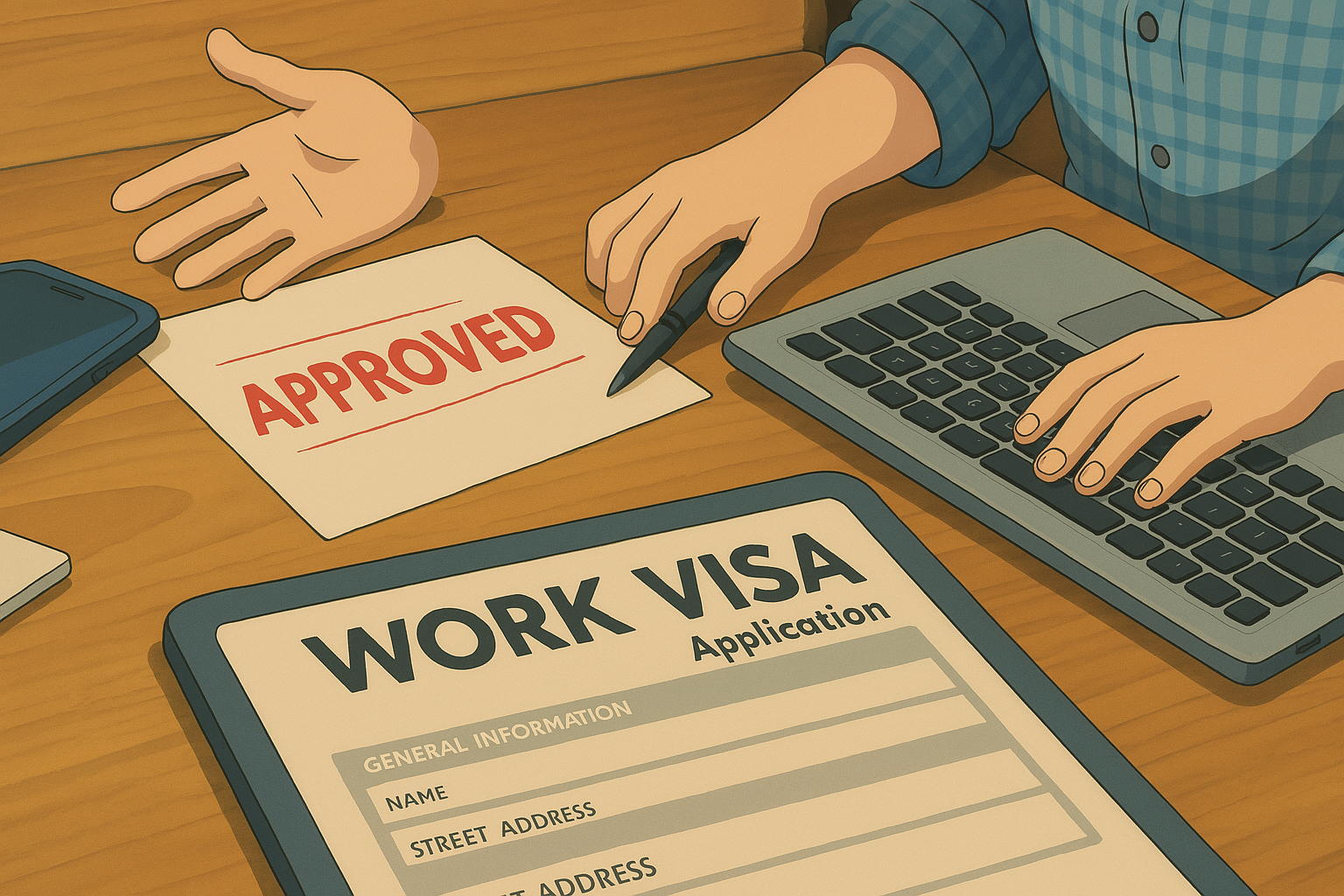In an increasingly globalized world, work visas play a crucial role in enabling skilled professionals, temporary workers, and business professionals to work legally in foreign countries. Understanding the differences between various types of work visas is essential for individuals seeking employment abroad, as well as for employers looking to hire international talent. This comprehensive guide will explore the different categories of work visas, their eligibility requirements, benefits, and key differences.
What is a Work Visa?

A work visa is an official authorization issued by a country’s government, allowing foreign nationals to enter and work within its borders for a specific period. Work visas are typically categorized based on the nature of the work, skill level required, and the intended duration of employment.
Types of Work Visas
Work visas vary by country, but they generally fall into the following categories:
1. Skilled Work Visas
Skilled work visas are designed for individuals who possess specialized qualifications, professional experience, or expertise in a particular field. These visas are usually issued based on a country’s labor market needs, ensuring that skilled workers fill critical gaps in industries such as technology, healthcare, engineering, and finance.
Popular Skilled Work Visas
- United States: H-1B Visa (Specialty Occupations)
- Canada: Express Entry – Federal Skilled Worker Program
- United Kingdom: Skilled Worker Visa
- Australia: Temporary Skill Shortage (TSS) Visa (Subclass 482)
- Germany: EU Blue Card
Eligibility Requirements
- A valid job offer from an employer in the host country
- Relevant academic qualifications or professional experience
- Proof of proficiency in the official language (e.g., English, German)
- Compliance with salary thresholds and employment conditions
Benefits
- Long-term work opportunities with a pathway to permanent residency
- Dependents (spouse and children) may be eligible to join
- Access to social benefits and labor protections
Challenges
- Lengthy processing times due to high demand
- Strict eligibility criteria and employer sponsorship requirements
- Annual visa quotas and caps in some countries
2. Temporary Work Visas
Temporary work visas are issued for short-term employment, typically ranging from a few months to a few years. These visas are ideal for seasonal workers, project-based employees, and individuals participating in cultural exchange programs.
Popular Temporary Work Visas
- United States: H-2A (Agricultural Workers) & H-2B (Non-Agricultural Workers)
- Canada: Temporary Foreign Worker Program (TFWP)
- United Kingdom: Temporary Worker – Seasonal Visa
- Australia: Working Holiday Visa (Subclass 417)
- New Zealand: Essential Skills Work Visa
Eligibility Requirements
- A short-term employment contract or seasonal work offer
- Employer sponsorship in some cases
- Proof of financial self-sufficiency
Benefits
- Quick and relatively easier application process
- Ideal for gaining international work experience
- Flexibility in employment sectors (agriculture, hospitality, tourism)
Challenges
- Limited duration with no direct pathway to permanent residency
- Dependents may not be eligible for accompanying visas
- Restriction on switching employers without approval
3. Business and Investor Visas
Business and investor visas cater to entrepreneurs, investors, and company executives looking to establish or expand their businesses in a foreign country. These visas often require significant financial investment and a demonstrated business plan.
Popular Business Visas
- United States: E-2 Treaty Investor Visa & L-1 Intracompany Transfer Visa
- Canada: Start-Up Visa Program
- United Kingdom: Innovator Visa
- Australia: Business Innovation and Investment Visa (Subclass 188)
- Singapore: EntrePass
Eligibility Requirements
- Proof of substantial investment capital
- Business plan detailing projected economic contributions
- Evidence of past entrepreneurial success
- Compliance with local business regulations
Benefits
- Ability to establish and run a business in the host country
- Potential pathway to permanent residency and citizenship
- Access to global markets and investment opportunities
Challenges
- High financial investment requirements
- Complex application process with stringent documentation
- Long-term business viability assessments
Key Differences Between Skilled, Temporary, and Business Visas Types
| Criteria | Skilled Work Visas | Temporary Work Visas | Business Visas |
|---|---|---|---|
| Purpose | Long-term skilled employment | Short-term or seasonal work | Business investment and expansion |
| Eligibility | Qualifications & employer sponsorship | Short-term work contract | Investment & business plan |
| Duration | Long-term (renewable) | Short-term (fixed period) | Long-term (renewable) |
| Residency Pathway | Possible | Limited | Possible |
| Family Sponsorship | Often allowed | Rarely allowed | Often allowed |
| Examples | H-1B (US), Skilled Worker (UK) | H-2B (US), Working Holiday (Australia) | E-2 (US), Start-Up Visa (Canada) |
Choosing the Right Work Visa Types
When selecting a work visa, consider the following factors:
- Nature of employment: Are you seeking permanent skilled work, a temporary job, or a business venture?
- Visa duration: Do you plan to work short-term or establish long-term residency?
- Employer sponsorship: Does your job require employer sponsorship?
- Financial requirements: Do you have the necessary investment capital for a business visa?
- Family considerations: Will your spouse or dependents accompany you?
Conclusion
Navigating the world of work visas types can be complex, but understanding the key differences between skilled, temporary, and business visas helps individuals make informed decisions. Whether you’re a highly skilled professional, a seasonal worker, or an entrepreneur, selecting the right visa type can open doors to global opportunities. Always consult immigration experts or official government sources to ensure compliance with the latest visa policies and requirements.
